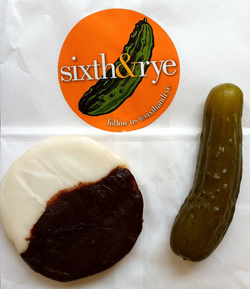
Last year I studied the rules of kosher and non-kosher food for 6 hours a day. Then a friend asked me a question and it changed my entire understanding of Kosher. This week’s parsha details the oldest health food craze, the Torah diet.
This week’s Parsha Shemini discusses kosher and non-kosher animals. After all the zoological details the end of the chapter makes a seemingly tangential non-sequitur or random statement.
“For I am Hashem your G-D - you will sanctify yourself and you will be holy for I am holy”, Vayikra 11:44.
My friend, Mechy, asked, Dan, why do you believe you cannot eat the animals prohibited in the Torah? I responded, every mitzvah is because G-D commanded it. But if I had to give a reason, one understanding I have is that these animals are not good for you metaphysically. Kosher is you are what you eat, at a spiritual level.
Mechy’s Dilemma
Q: If a Rabbi makes a mistake and says something is kosher when it is accidentally not kosher and someone eats it, did they eat non-kosher and cause themselves spiritual harm?
My initial thought was that the person did eat non-Kosher. We have a list in the parsha of the non-kosher animals and the person ate one so they ate non-kosher. But now after further thought, discussion and research I believe the person did not eat non-kosher at all. They ate kosher food! Humans make things kosher and non-kosher. G-D has invested us with that power. Humans are the ones who imbue holiness into things. It is not the things that imbue holiness unto the people.
That is what “ you will sanctify yourself” is telling us.
We are the ones that invest the metaphysical reality into kosher and non-kosher. When a Rabbi says something is kosher for you, it is kosher. The declaration itself makes it kosher to you.
Bonus Source: Rav Soloveichik weighs in.
Judaism has always maintained that holiness is not something objective inherent in an object, prevailing independently of the way this particular sacred object is treated . We denied the idea that there is sanctity per se, a metaphysical endowment which persists irrespective of man’s relationship to the object.
Sanctity is born out of man's actions and experiences and is determined by the latter. The very instant man adopts a coarse attitude towards the hallowed object - the moment of sacredness is eliminated.
Sanctity expresses itself not in the formal quality of the object or institution but in a relationship between the latter and man. It is an experience rather than an endowment. If something is not experienced as sacred , the object or institution forfeits its uniqueness and numinous character.
 RSS Feed
RSS Feed